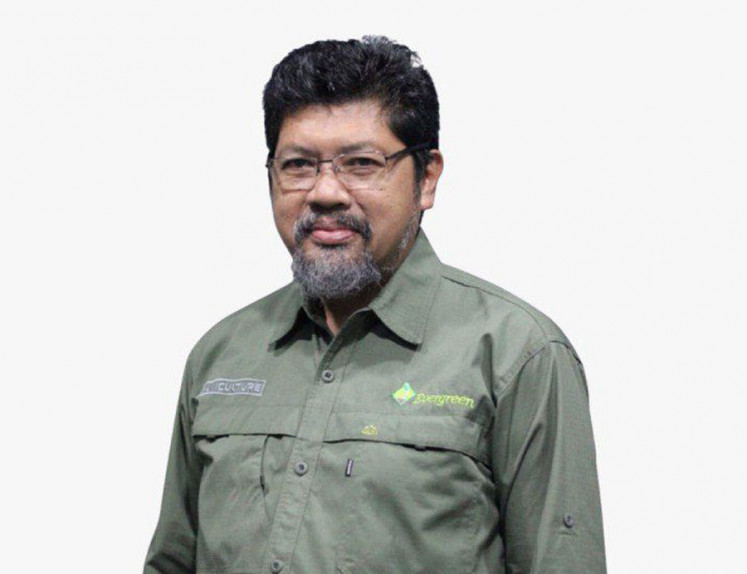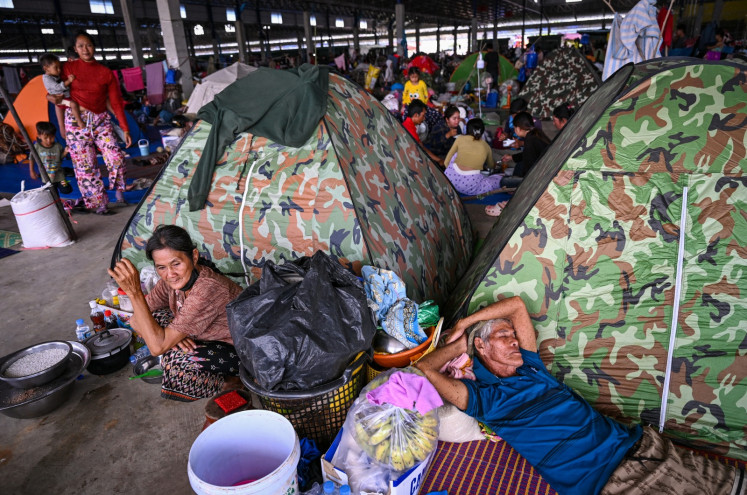Popular Reads
Top Results
Can't find what you're looking for?
View all search resultsPopular Reads
Top Results
Can't find what you're looking for?
View all search resultsThe other face of the younger generation. What can we do?
Instead of building the innovation ecosystem, which takes 15 over year or more, we tend to short cut by entering rent-seeking business.
Change text size
Gift Premium Articles
to Anyone
F
rom 2020 to 2022, I met intensively with the country's future leaders studying in its most-prestigious institutes and universities. There is only a “handful” of them: Bright, smart, English as their second language, visionary, full of energy, promising and diligent students.
They stand for what the mainstream media depict as "upper-middle income group, highly educated, latte-sipping and [future] white-collar employees". They are in the 10-percent bracket of university graduates to be absorbed into industries.
However, to my demise, a very articulate journalist’s work, “Underprivileged millennials: Being young and poor in Jakarta” (Tehusijarana, 2020) portrays a less-known side of the country's millennials (the most significant part of Indonesia's much-vaunted “demographic bonus”), which very much to the contrary: "only have a high-school level education, work in blue-collar or low-level service jobs, with an average monthly income of only around US$150”.
A YouTube documentary (The Jakarta Post, 2020) with the same title portrays a character who is one of the many blue-collar millennials who toil day in and day out to make ends meet, who are rarely discussed in mainstream media. While most white-collar professionals work from 9-5 in their office cubicles, those blue-collar workers may hold a graveyard shift in industrial areas. The persona earns $107 a month. All his salary goes to paying off his motorcycle and smartphone that he recently purchased. He depends on his $3 per diem plus occasional tip for his daily meal and miscellaneous expenses such as data package for his smartphone and other entertainment. He has no savings.
We need industries to absorb the graduates: The innovation-driven enterprise, heavy-machinery industries, intensive-capital manufacturing. However, we are facing a predominant practice of rent-seeker business-model companies, which is extremely useful in contributing the consumption variable in the GDP equation. We are missing the investment variable in the GDP equation.
Mirroring the picture of “technological-adoption cycle” against the “consumerism-adoption cycle”, most perceive Indonesians as early adopters when it comes to consumerism. We absorb all new products that ever existed on the planet, especially the cheaper ones. We are laggard or pragmatic at best when it comes to adopting the technology as leverage to develop the country.
Instead of building the innovation ecosystem, which takes 15 years or more, we tend to short cut by entering the rent-seeking business. More rewards are provided to them compared to the people/businesspeople/women who invest in building R&D, building factories of their brand for the non-consumer market or for the low-end disruptive market.



















